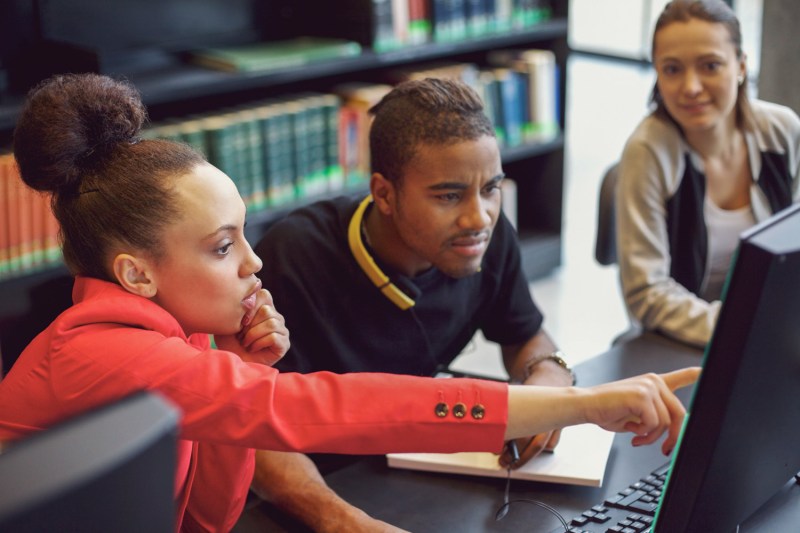Your classmates’ genes may affect how well you do in school, a team of education researchers has found in a new study.
The study examined the relationship between the height, weight and educational attainment of 5,500 students and the genes of their peer group.
“We didn’t find a correlation to height or weight, but did find a small one with how far you go in school,” Ben Domingue, the study’s first author and an assistant professor at the Graduate School of Education, told Stanford News.
A similar effect has been found in mice: A recent study discovered that the DNA of a laboratory mouse’s cage mates influences the mouse’s anxiety, wound healing, immune function and body weight. Researchers call these correlations social genetic effects, which occur when the health or behavior of an individual is affected by the genes of a peer.
Researchers say that students’ genetics shape their personal traits, which then influence their schoolmates’ behavior. Peers who habitually stay up late due to a genetic predisposition, for example, may influence other students to stay up late as well, potentially affecting their performance in school and the amount of formal schooling they complete.
However, the effect of schoolmates’ genetics was relatively small, amounting to about an extra one-third of a year of schooling for students on average. Domingue added that the impact on students is not a foregone conclusion, since neither students’ genes nor those of their friends wholly determine their behavior and performance.
Kathleen Mullan Harris, senior author of the study and distinguished professor of sociology at the University of North Carolina at Chapel Hill, said that the results are significant for drawing a link between peer group genetics and a socially-linked quality like educational attainment, rather than a physical one such as height or weight.
“Unlike height, educational attainment is socially contextualized,” Harris said. “There is more going on than genetics. Our results imply that scientific investigations into either genetic and social effects need to account for the other.”
The study also discovered that schoolmates are more genetically alike than strangers, suggesting that socioeconomic factors may cause students with similar genes to attend the same schools, said Domingue. This is an extension of previous research on the genetic similarities among friend groups.
“It is certainly the case that individuals do a lot of planning around which schools their children will attend,” the researchers said. “One of the side effects of this competition to gain access to certain schools seems to be the grouping of like with like.”
The study could inform further research in both social science and genetics. A better understanding of social genetic effects may enhance social scientists’ research on peer effects, while geneticists may need to consider the role of these effects in genetic studies of variables closely linked to one’s social context.
In addition to Domingue and Harris, the paper’s co-authors include Daniel Belsky of the Duke University School of Medicine, Jason Fletcher of the University of Wisconsin-Madison, Dalton Conley of Princeton University and Jason Boardman of the University of Colorado, Boulder.
Contact Fangzhou Liu at fzliu96 ‘at’ stanford.edu.
